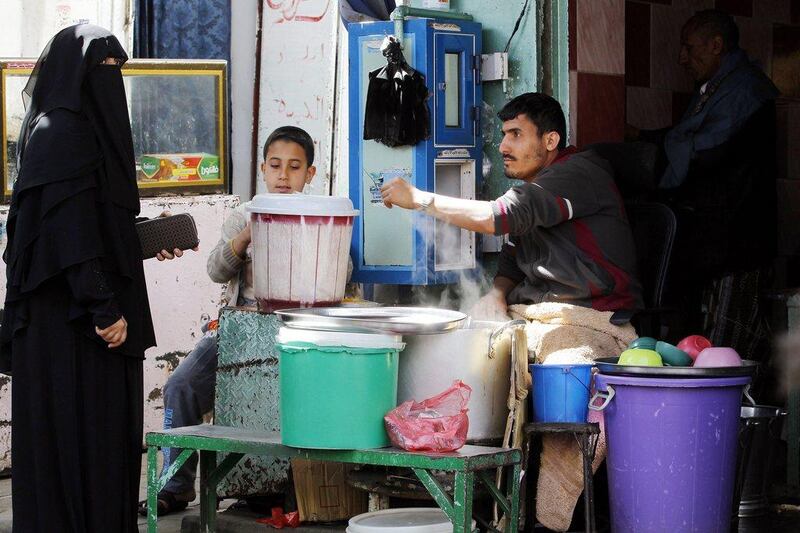GENEVA // A cholera outbreak in Yemen has killed 242 people, and left nearly 23,500 others sick in the past three weeks alone, the World Health Organisation said on Friday.
The UN health agency said that in the past day alone, 20 cholera deaths and 3,460 suspected cases had been registered in the country, where two-thirds of the population are on the brink of famine.
“The speed of the resurgence of this cholera epidemic is unprecedented,” WHO country representative for Yemen Nevio Zagaria said, warning that a quarter of a million people could become sick by the end of the year.
Cholera is a highly-contagious bacterial infection spread through contaminated food or water. The disease causes sudden onset of acute watery diarrhoea and can kill within hours, although three-quarters of infected people show no symptoms.
The short incubation period means outbreaks can spread with explosive speed, especially in places without safe water and proper sanitation, according to the WHO.
Reining in the disease is complicated in Yemen, where two years of war between the Houthis and forces of the government backed by a Saudi-led Arab military coalition has left more than half the country’s medical facilities out of service.
Mr Zagaria pointed out that humanitarian workers cannot access some parts of the country, and that the number of suspected cholera cases could be far higher than those registered.
Yemen’s conflict has killed more than 8,000 people and wounded around 40,000 since March 2015, according to the WHO.
Mr Zagaria pointed out that many of the remaining health workers in the country had not been paid for seven months.
At the same time, he said, lacking electricity meant water pumping stations were only functioning intermittently, and the sewer systems were damaged.
“The population is using water sources that are contaminated,” he said.
Cholera cases were overwhelming Yemen’s remaining hospitals, but it would be better to treat them in specialised centres, 50 of which are already operating, along with 300 oral rehydration points, Mr Zagaria said. But such numbers were too few.
He said UN agencies were preparing to “release an emergency response cholera plan in the next 48 hours,” aimed at increasing the number of treatment centres and rehydration centres.
At the same time, he said there was a strong need for funding to help Yemen authorities to make the necessary infrastructure repairs.
“The spread of the disease is too big and they need substantial support, in terms of repairing the sewer system ... treating and chlorinating the water sources.”
Without dramatic efforts to halt the spread of the disease, “the price that we will pay in terms of life will be extremely high,” he warned.
* Agence France-Presse and Reuters





